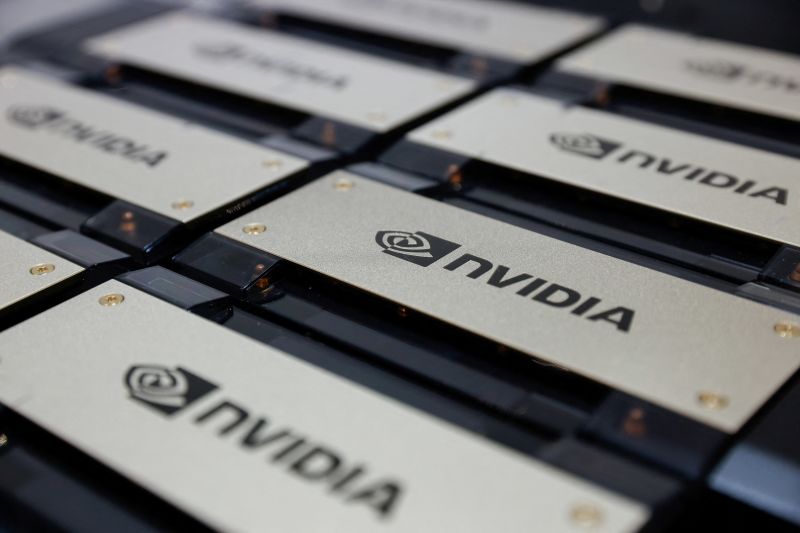
Nvidia's Development of New Chips in Compliance with US Export Curbs for Chinese Market

Nvidia collaborates with US government to ensure chips for China adhere to export restrictions, affirms CEO Jensen Huang
Nvidia is collaborating with the US government to ensure that the new chips being produced for the Chinese market comply with export restrictions, CEO Jensen Huang announced on Wednesday.
The California-based designer of artificial intelligence chips currently holds over 90% of China's $7 billion AI chip market. However, analysts believe that the new US restrictions on chip exports could open up opportunities for Chinese competitors to gain ground.
Nvidia (NVDA) notified customers in China last month that the launch of a new China-focused AI chip would be postponed until the first quarter of next year, according to Reuters. However, Huang did not confirm the details of the Reuters article.
"Nvidia has been closely collaborating with the US government to develop products that adhere to regulatory standards," stated Huang during a press conference in Singapore.
"Our next step is to further collaborate with the government to innovate a new line of products that meet the requirements of the updated regulations with specific limitations."
He added Nvidia needs to seek the advice of the market and the process is ongoing, adding that Huawei was a "formidable" competitor.
NVIDIA HGX AI Supercomputer on display during the annual Foxconn Tech Day in Taipei, Taiwan October 18, 2023. REUTERS/Ann Wang
Ann Wang/Reuters
Tencent has announced that it has accumulated a supply of Nvidia chips but is now looking for alternative Chinese options. Following Nvidia's warning of a significant decline in fourth-quarter sales in China due to new U.S. regulations, Tencent is seeking to lessen its reliance on foreign suppliers.
Huang pointed out that historically, China has accounted for approximately 20% of Nvidia's revenue, but it was uncertain how much this would change due to the new U.S. export restrictions. Additionally, he mentioned that Nvidia was in discussions with Singapore regarding significant investments and collaborating with the city-state to aid in the development of its own large language model, Sealion.
Singapore's Infocomm Media Development Authority (IMDA) revealed on Monday a groundbreaking S$70 million ($52 million) initiative to create the first large language model in Southeast Asia.
Huang highlighted Singapore's thriving AI ecosystem and its significance as a prominent data hub for numerous Asian markets.














